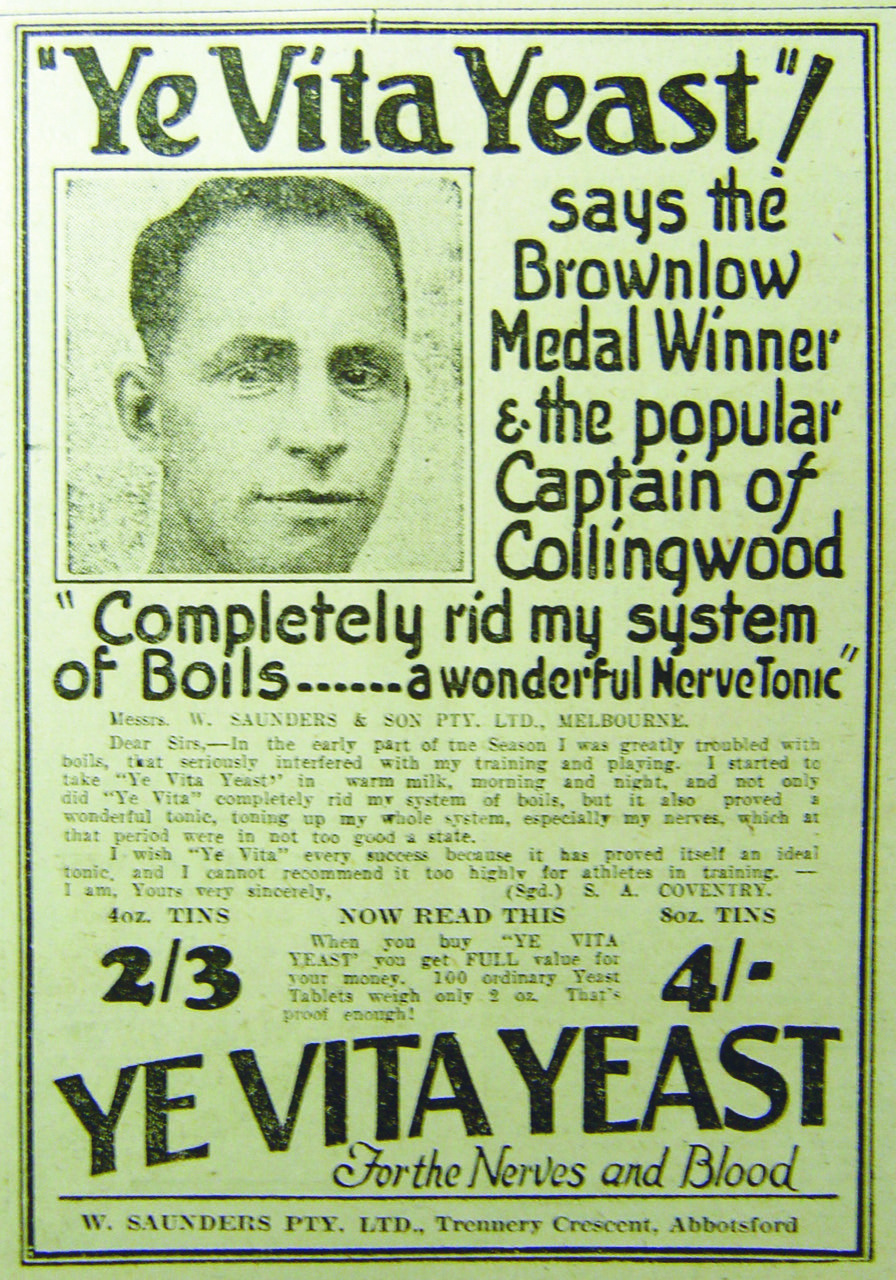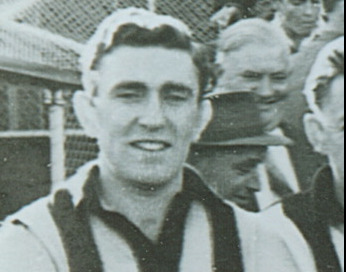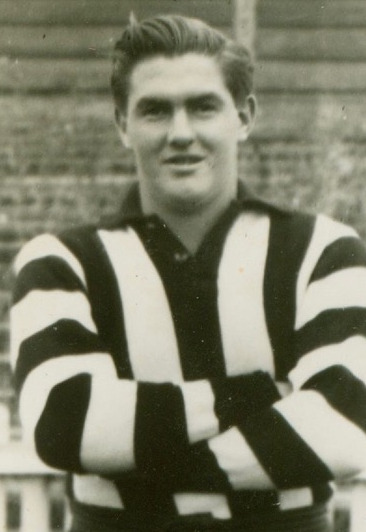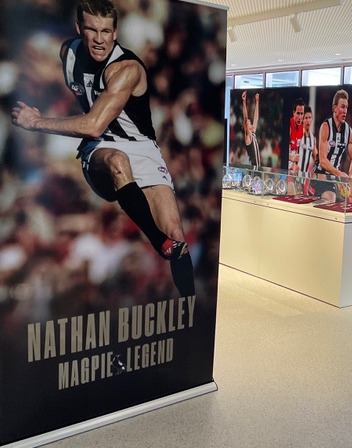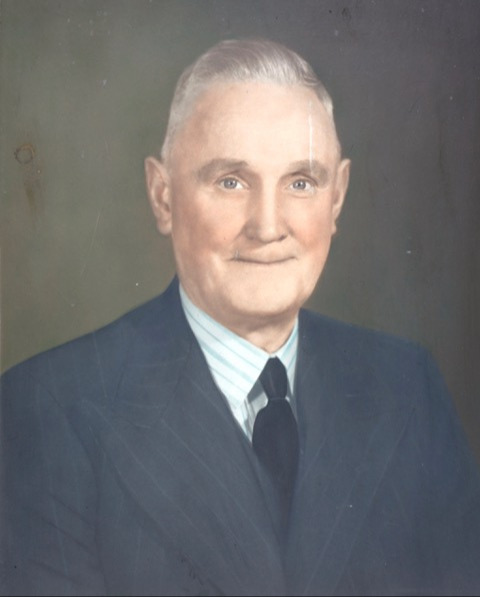
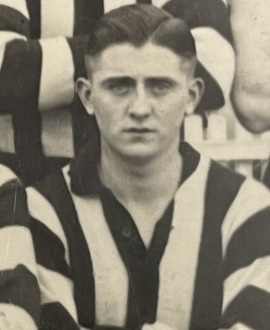
The sport of handball has long enjoyed an existence far beyond what most football fans know of the art.
We’re talking here about the sport that is quite like squash except that participants use their hands rather than racquets, and the three-walled courts are often outside. The sport can be traced back to Roman times, and was especially popular here in the 1920s-50s, when a number of footballers pursued it. Perhaps the most famous example was Jack Beveridge, who played in the Machine teams of the late 1920s and who was an outstanding exponent. So too was 1958 Premiership player Bill Serong.
Another top level exponent was Kevin Sullivan. Kevin would represent Victoria in handball, and the quick reflexes and mobility needed to be good at it would stand him in good stead in his football career.
He grew up and lived in West Brunswick. His mother was part of the Wren family, and one of his uncles, Leo Sullivan, was captain of VFA side Brunswick in the late 1920s.
By 1940 he was starting to make a name for himself as a centreman/wingman/flanker. He was part of the club’s reserves premiership side that year, as well as playing in another flag with the local Collingwood Juniors side.
Funnily enough, it was his performance with the Juniors that attracted most attention. Former North Melbourne rover Charlie Hardy, who was then writing for the press, had watched the game and reported:
“At centre, Kevin Sullivan is the ideal type for that position. He has speed and possesses football sense. He rarely failed to use the ball to advantage, whether in passing or with long driving kicks to position. He marks well and showed courage and stamina. He has distinct possibilities and if coached for the job should become a great centre player.”
Kevin's performances with the Juniors and Collingwood reserves were enough to win him a spot in the senior practice games of 1941, where he shone. One newspaper reported that coach Jock McHale had been ‘very pleased’ with his showing in one game, while other papers described him as “a centreman of class” and said he was “always in the limelight”.
Kevin made his senior debut in the second round against Hawthorn, after one newspaper reported: "Selectors have had their eyes on Sullivan, who has played brilliantly on the wing in the second eighteen.” He did well enough to hold his spot in 10 senior games that season, some of which saw him come from the bench. An early highlight was him being part of the team that won the Patriotic Cup in May, a lightning premiership-style competition played to raise funds for the War effort.
For a guy who only turned 19 at the end of that season, it was an encouraging debut campaign and offered plenty of promise for what lay ahead.
But unfortunately the Second World War intervened. And as happened with so many other footballers, it turned Kevin’s career upside down.
He missed the entire 1942 season while on service, played a solitary game in 1943 then wasn’t seen again until 1946. Most of his time then was devoted to service, where he worked in signals or as a communications runner with the 39th battalion in New Guinea, and then with the AIF.
He returned to Victoria Park after the War ended but played only two further games, his career over at the crazily young age of 23.
His handball career continued, however, and he remained a star. He was working with the Melbourne and Metropolitan Tramways Board as a clerk with bookkeeping and accounting roles during this time, a career he would continue.
He stayed involved with the footy club, was a long-standing member and also involved with the Past Players Association. His name briefly hit the headlines again in 1966 when he became one of the first in the country to undergo a successful kidney transplant (Kevin’s case was number nine on the list at the Royal Melbourne Hospital). He’d been struggling with kidney issues since his War service, and had been in and out of hospital for the three years preceding the operation, which ultimately saved his life.
Kevin Sullivan had the tools needed to have enjoyed a fine career. And there were certainly plenty of opportunities around Collingwood in the early to mid 1940s. But unfortunately the Second World War cruelled his career, and denied him the chance to find out just how far he might have gone.
- Michael Roberts
CFC Career Stats
| Season played | Games | Goals | Finals | Win % |
|---|---|---|---|---|
| 1941, 1943, 1946 | 13 | 1 | 0 | 84.6% |
CFC Season by Season Stats
| Season | GP | GL | B | K | H | T | D | Guernsey No. | ||
|---|---|---|---|---|---|---|---|---|---|---|
Other CFC Games
| Team | League | Years Played | Games | Goals |
|---|---|---|---|---|
| Collingwood | Reserves | 1940 - 1946 | 11 | 0 |


